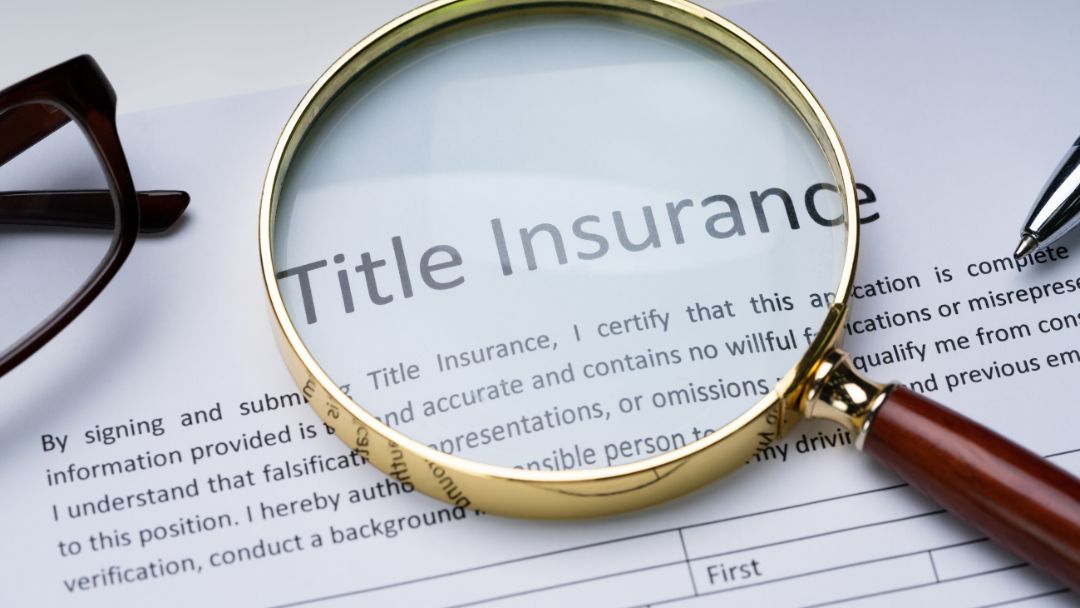When you buy a home, you want to be sure that you have clear ownership of the property. Unfortunately, that’s not always the case. Title problems can arise that threaten your ownership, and title insurance is designed to protect you from those problems. In this article, I’ll explore what title insurance is, how it works, and whether or not it’s necessary.
Definition of Title Insurance
Title insurance is a type of insurance that protects property owners against losses from disputes over the ownership of their property. It is typically purchased prior to the purchase and provides protection in case there are any hidden issues with the title that come up after closing. Coverage provided includes legal defense fees, court costs, and other related expenses incurred due to a dispute over title.
It turns out that there are two types of title insurance that most buyers will purchase. Lender insurance protects the mortgage lender’s interest in a property, while buyer insurance protects the buyer’s interest in a property. Insurance is generally required by lenders when they issue a loan to ensure that the loan is secured by an insurable property.
If you have a mortgage, meaning you are borrowing money to purchase a property, you can expect that you’ll be required to purchase a lender insurance policy. Buyer insurance is optional and provides protection for buyers against losses related to problems with the title of their new home.
Lender’s insurance protects lenders from loss caused by defects in titles while buyers’ insurance protects buyers from unknown claims against their properties. Lender’s coverage typically lasts until the full amount of the mortgage loan has been repaid, while buyer’s coverage lasts as long as you own the home.
Additionally, a lender’s policy only covers what is listed in the deed on the mortgage loan. Buyer’s policies provide more comprehensive protection since they may cover items such as easements and boundary line disputes with neighbors.
What Title Insurance Covers
Title insurance covers losses related to a dispute regarding the rightful ownership of a property. Examples of these types of ‘clouds’ on title include:
- Liens: Liens are claims against the property that are filed by creditors. If previous owners of the property failed to pay a debt, the creditor may place a lien on the property. If the lien is not paid, the creditor may be able to foreclose on the property.
- Encumbrances: Encumbrances are restrictions on the property that limit its use. Examples of encumbrances include easements, which give someone else the right to use the property, and covenants, which require the homeowner to do or not do something on the property.
- Title defects: Title defects can include anything that threatens the owner’s clear ownership of the property. Examples of title defects include forged documents, errors in the public record, and boundary disputes.
Do You Need Title Insurance?
The short answer is yes, you need this type of insurance. While it is not required by law, it is a good idea to purchase title insurance to protect your investment. There are several significant risks associated with not purchasing title insurance.
- Financial Losses: If a title defect is discovered after you purchase a property, you could face financial losses. For example, if a lien is placed on the property and you are unable to pay it, the creditor may be able to foreclose on your property to recover a debt.
- Legal Fees: If a title defect is discovered, you may need to hire an attorney to resolve the issue. Legal fees can be expensive, and without title insurance, you may be responsible for paying these fees out of pocket.
- Loss of Property: In some cases, a title defect may be so severe that you could lose your ownership of the property. Without title insurance, you may be unable to recover the full value of the property.
Cost Of Title Insurance
According to the California Land Title Association, typical title insurance rates in California range from $2.70 to $3.50 per thousand dollars of coverage. The exact cost for an insurance policy depends on the type and amount of coverage being purchased. Other cost factors include the location and type of property being insured (e.g., single-family home or commercial building).
Your title company will provide the detailed coverage amounts for your property. This information will be included in the closing disclosure documentation.
In most cases, buyers are not able to negotiate the cost of insurance as rates are set by the state. However, buyers can get bids from third party providers in order to compare prices before choosing an insurer.
This fee can sometimes be incorporated into closing costs when purchasing real estate. It’s important to ask about this when shopping around for mortgages if you are considering buying real estate.
Conclusion
Your home is likely to be the most expensive purchase of your life, so you owe it to yourself to protect that investment. Of course your lender will require that you purchase a lender policy to ensure their collateral has value in the event of a loan default
But you have the choice to make about your own risk profile. Remember that buyer insurance is a one time payment you make when you close on your property purchase. The policy will protect you for the entire time you own the home.
If you have any questions about any other aspects of the closing process, please reach out to me. I’ve been through hundreds of escrows and can advise you on all the details of the process.
With a basic understanding of the details, and some good advice, your biggest asset will be safely protected for many years to come.




